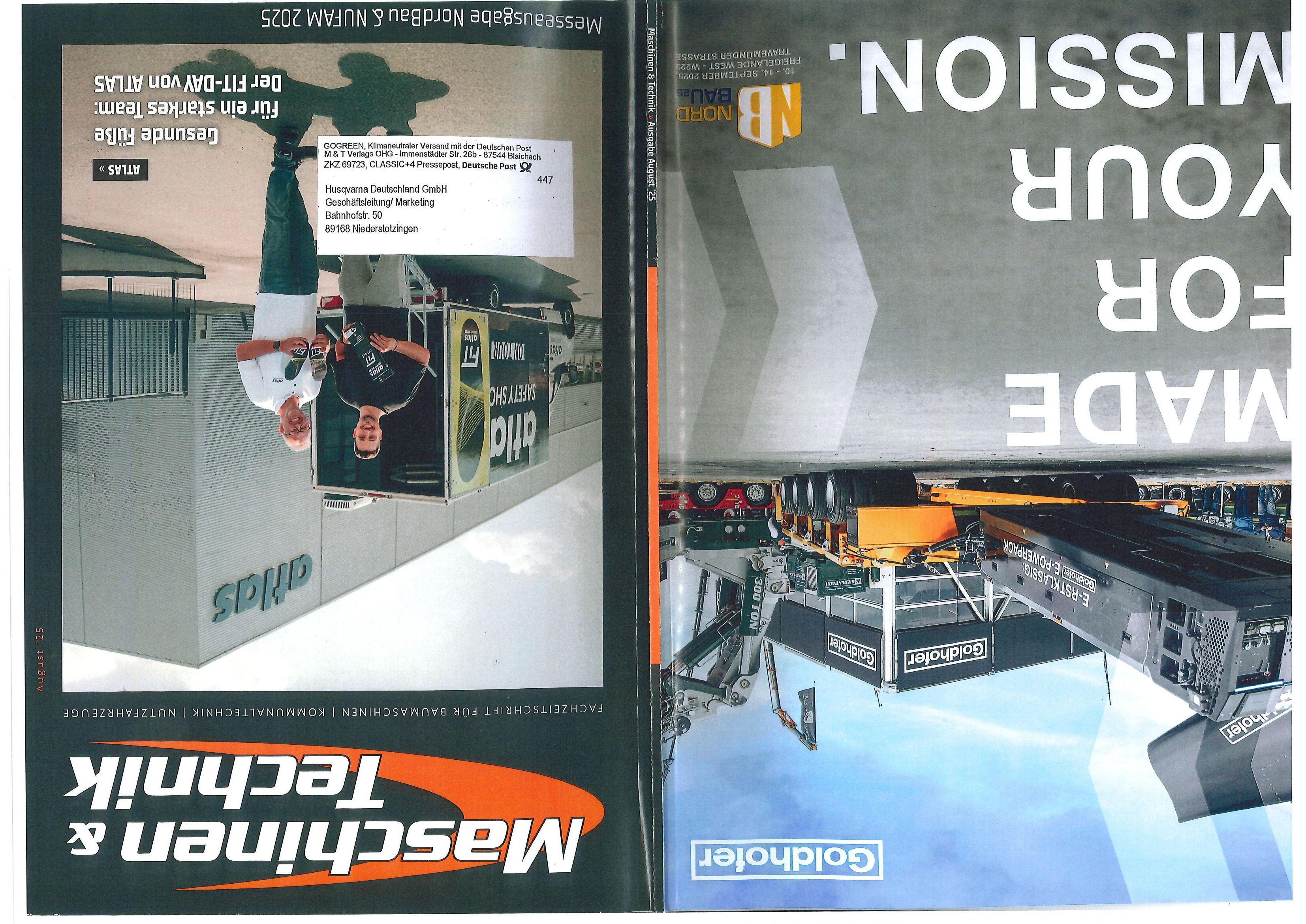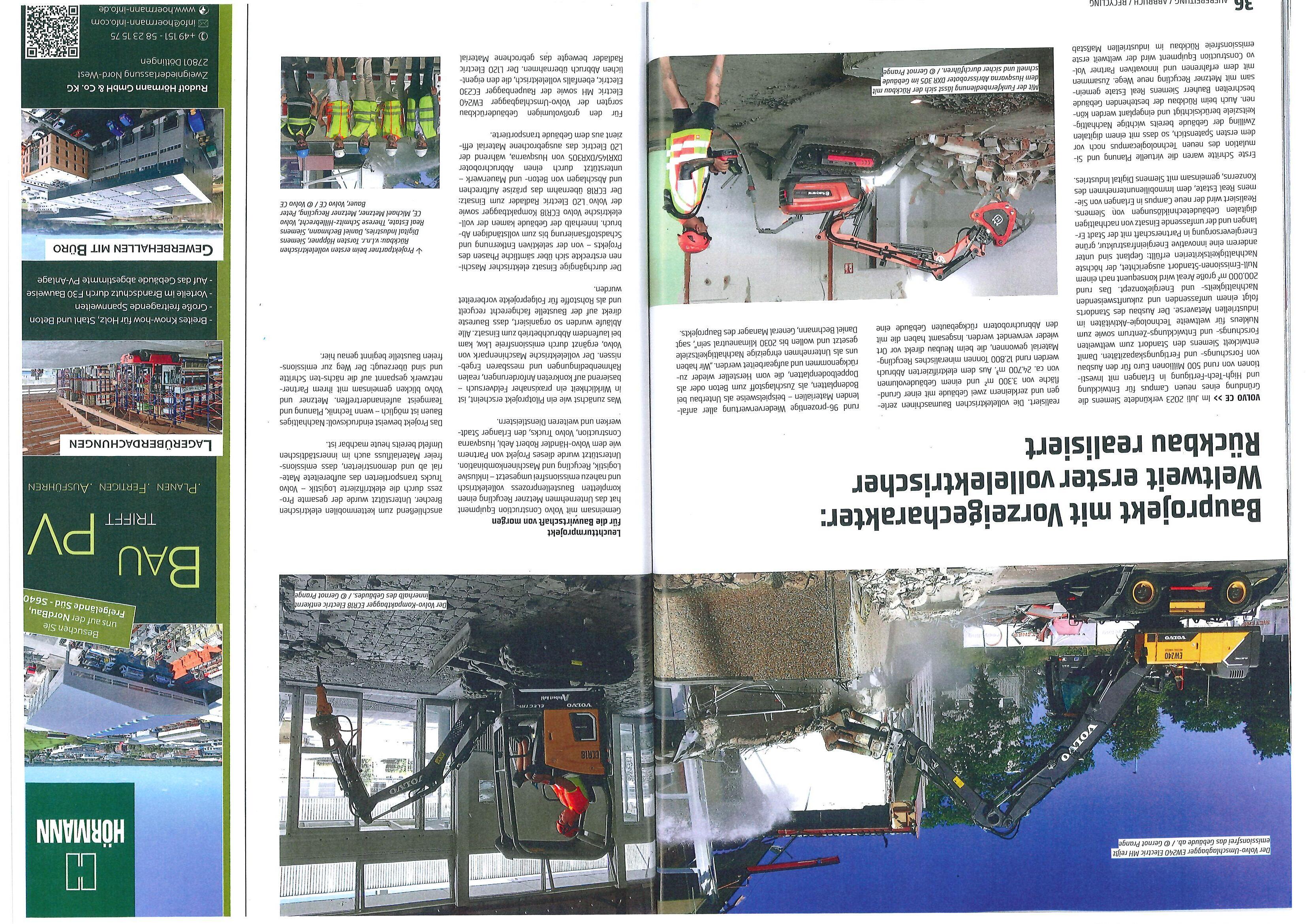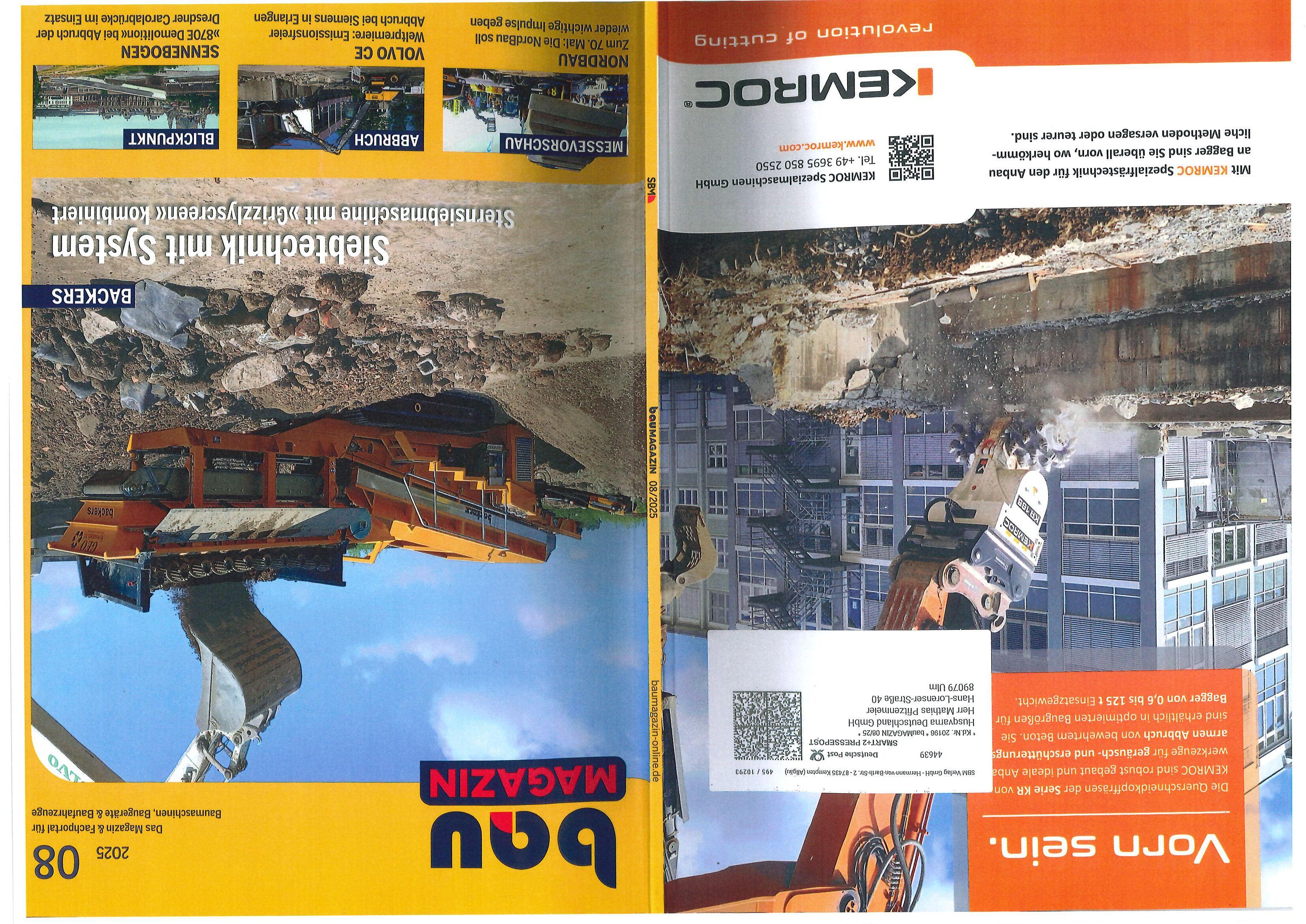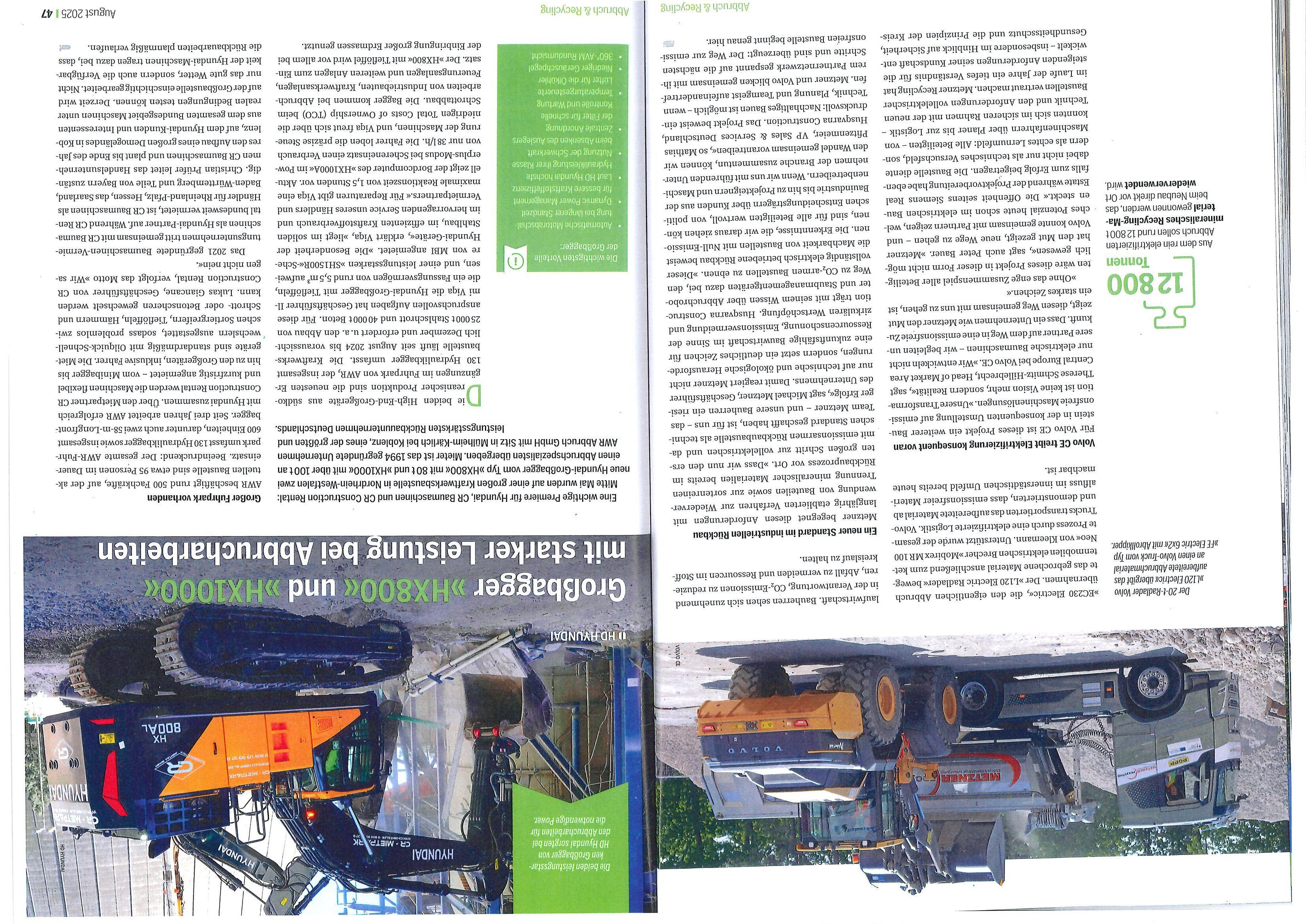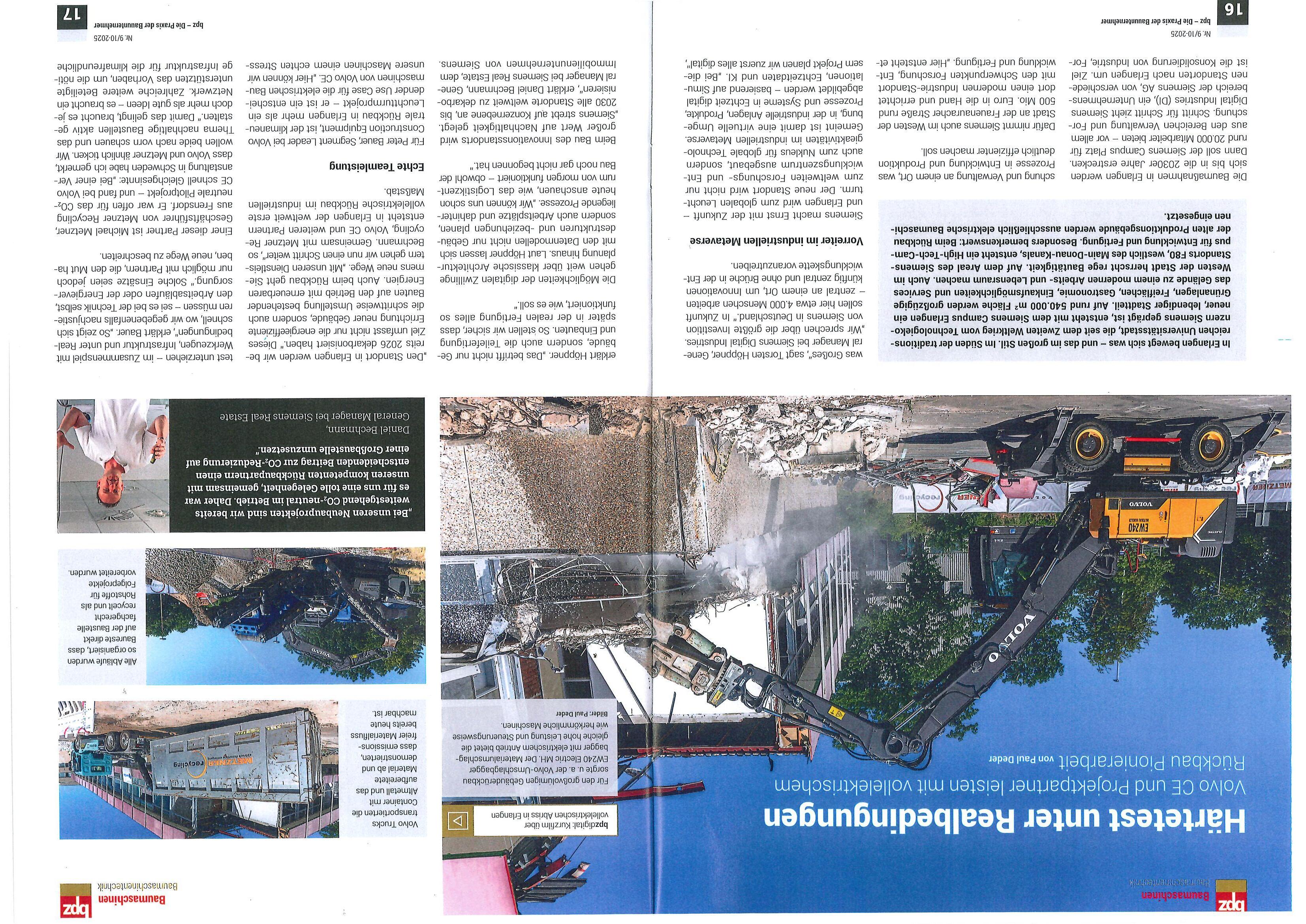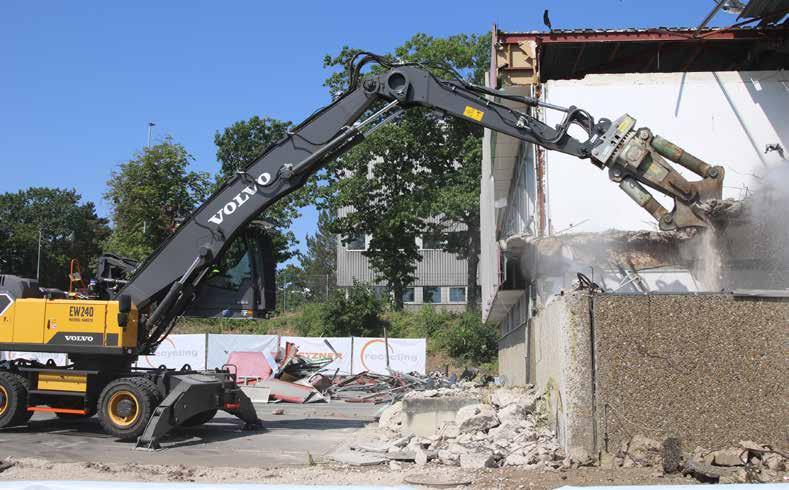
recycling site.


recycling site.
On 2 July, at the demolition site at Siemens’ new technical campus in Erlangen, PDi Magazine saws at first hand the first demolition project using 100% electrically powered machinery. Behind the historic event was the demolition contractor Metzner Recycling. The company acted in collaboration with Volvo CE, Siemens and had support and equipment from Husqvarna Construction, Volvo Trucks and Robert Aebi, amongst others.
On what was perhaps the warmest day of the year so far in southern and central Europe, Volvo gathered European construction industry journalists in Erlangen, Germany, to show its latest innovations. This was to show what a completely climate neutral construction site with 100% electric powered construction machines looks like. Volvo Construction Equipment, together with the German demolition and recycling company Metzner Recycling, acted in collaboration with the manufacturer Siemens. Metzner Recycling has been commissioned to carry out the demolition of a number of buildings in Erlangen. The new Siemens Technology Campus will be built on the site and will become the heart of Siemens research and development work. Husqvarna Construction, whose electric machines and equipment were also used in the demolition, were also in attendance along with other manufacturers.
More than 60 journalists from industry magazines from throughout Europe attended the event. The group of journalists was divided into a German speaking group
and an English speaking groups. While one group received theoretical information about the project and its participants, the other group had the opportunity to observe the demolition using 100% electric machines via several workstations. The material resulting from the demolition will be recycled and divided at different

stations. All concrete is crushed on site and recycled into different fractions and then reused onsite or transported to other building sites. The project is a textbook example of what a completely climate neutral construction site should look like and is said to be the first 100% entirely electric powered demolition site in the world.
In July 2023, Siemens announced an ambitious plan to invest €500M in establishing a new campus in Erlangen, Germany, dedicated to development and high tech production, enhancing its research and production capabilities. This state of the art site will serve as a global hub for research and development, and act as a nucleus for global technology initiatives in the industrial metaverse. The expansion of the plant follows a comprehensive and forward looking sustainability and energy concept.
The approximately 200,000m2 site is designed to be zero emission, adhering to the highest sustainability standards. The plans include innovative energy infrastructure, green energy supply and storage in partnership with the city of Erlangen, and the extensive use of Siemens’ sustainable digital building technology solu-
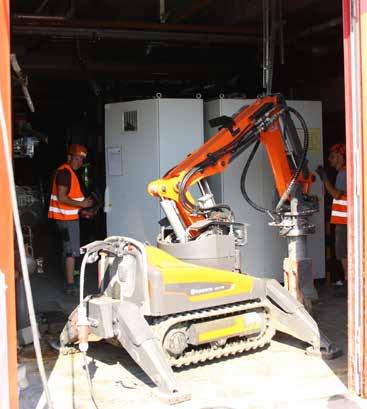
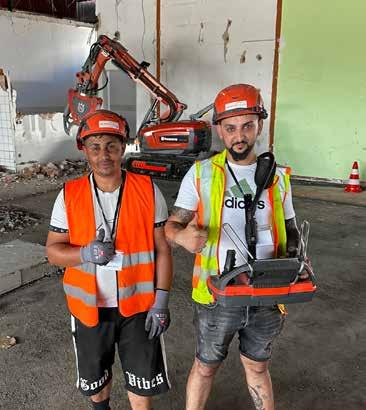
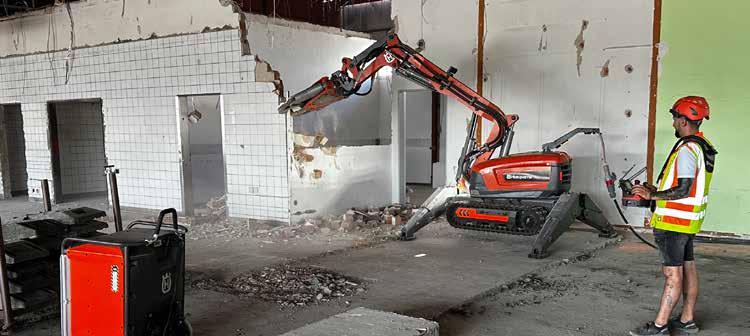





tions. The new campus is being developed by Siemens Real Estate, the Group’s real estate company, together with the Siemens Motion Control Business of Digital Industries.
The project began with the development of a virtual plan and a simulation of the new campus. This approach allowed important sustainability goals to be included from the outset and planned using a digital twin of the buildings. Metzner Recycling and Volvo CE then set a new standard for sustainable deconstruction practices through the dismantling of the existing buildings. In collaboration with its experienced and innovative partner, Volvo CE, the team successfully achieved the world’s first emission free deconstruction on an industrial scale.
On the first phase of the project, all-electric construction equipment was used to dismantle and crush three existing buildings with an area of almost 25,000m 2. Approximately 12,800t of construction waste was crushed, with 96% of the materials processed reused in new construction, such as an aggregate for concrete. Daniel Bechmann, general manager of the construction project, said: “As a company, we have set ourselves ambitious sustainability targets and want to be climate neutral by 2030. We are already largely CO2 neutral in our new construction projects. It was therefore a great opportunity for us to make a decisive contribution to reducing CO2 on a major construc-

Another aspect of safe working conditions is to manage dust on the job site in a safe and efficient way, and this site was no exception. Alongside the two demolition robots (DXR 305 pictured), the project used two air cleaners from Husqvarna, the A 45 and the soon to be launched A 100.


tion site, together with our competent dismantling partners.”
In collaboration with Volvo CE, Metzner Recycling implemented a fully electric and virtually emission free construction site process encompassing logistics, recycling and machines. The project was supported by partners including Robert Aebi, Husqvarna Construction, Volvo Trucks, Erlanger Stadtwerke as well as other service providers. What initially appeared to be a pilot project has proven to be a practical field test, based on specific requirements, real life conditions and measurable results.
Throughout the demolition works, all-electric construction machines from Volvo CE were used alongside zero emission trucks. The processes were meticulously organised to allow construction waste to be recycled directly onsite and converted into raw materials for subsequent projects. The primary goals were to reduce emissions, avoid transportation and to use resources efficiently.
Electric machines were used throughout all phases of the project, from selective gutting and pollutant cleanup to complete demolition. Inside the buildings, a Volvo ECR18 Electric compact excavator performed
precise break-up and demolition of concrete and masonry supported by Husqvarna DXR 145 and DXR 305 demolition robots and air cleaners. Meanwhile, a Volvo L20 Electric wheel loader efficiently transported the excavated material out of the building. A Volvo EW240 Electric material handler and Volvo EC230 Electric excavator were tasked with handling the large scale building demolition work. Following this, a Volvo L120 Electric wheel loader moved the crushed material to a track mounted electric crusher. Supporting this electrified logistics process, electric trucks from Volvo Trucks transported the processed material away. This project serves as a powerful demonstration that emission free material flow is already feasible today, even in inner city environments.
Volvo CE drives electrification forward For Volvo CE, the project represents another step forward in the transition towards emission free construction sites. “Our transformation is no longer a vision, but a reality,” said Therese Schmitz-Hillebrecht, head of Central Europe at Volvo CE. “We don’t just develop electric construction machines; we accompany our partners on the path to an emission free future. Metzner’s decision to join us on this journey shows real vision and commitment.” Peter Bauer, segment leader at Volvo CE, added: “Without the close cooperation of all those involved,


OilQuick is a Full Line Supplier that offers fully automatic quick couplers for more than just excavators. Our quick coupler systems works just as fine on wheel loaders, forklift trucks, material handling machines or on a crane.
Being able to change both hydraulic, electrical and mechanical attachments without leaving the cab increases both productivity and safety.

We also offer high quality tiltrotators. Imagine the flexibility of having our quick coupler both above and below the tiltrotator.
The OilQuick systems will not only make your machine but also your company more flexible,


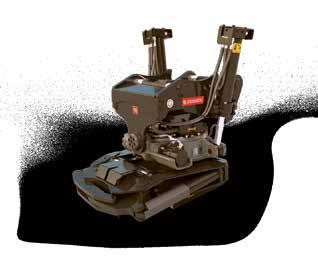

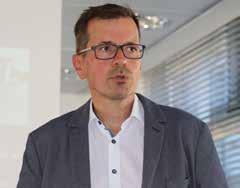
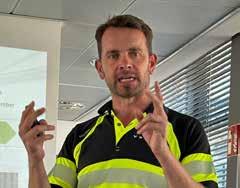
this project would not have been possible in this form. Metzner embraced the opportunity to pioneer a new approach and Volvo, together with its partners, has been able to demonstrate the potential that already exists in electric construction today.”
The success of the project is also testament to the openness of Siemens Real Estate during the preparation phase. The construction site has served not just as a technical testing ground, but also as a real learning environment. Everyone involved, from machine operators to planners and logistics, was able to familiarise themselves with the new technology and safety requirements of all-electric construction sites.
Over the years, Metzner has developed a profound understanding of the increasing demands of its customers, especially when it comes to safety, health and circular economy principles. Increasingly, building owners are recognising their responsibility to reduce CO2 emissions, avoid waste, and keep resources in the material cycle. Metzner addresses these needs through long established processes for component reuse and onsite separation of mineral materials during the dismantling
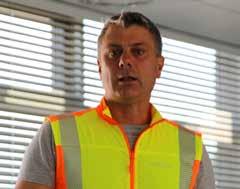


process. Michael Metzner, managing director of Metzner Recycling, said: “The fact that we have now taken the
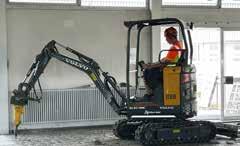




first major step towards an all-electric, low emission dismantling site as a technical standard is a huge success for us, the Metzner team, and our clients.” Metzner is not only responding to technical and ecological challenges but also sending a clear message that a sustainable construction industry is possible, with resource conservation, emission avoidance and circular value creation.
Furthermore, with its knowledge of demolition robots and dust management equipment, Husqvarna Construction is also helping pave the way for low CO2 construction sites. Mathias Pfitzenmeier, VP Sales & Services Germany, Husqvarna Construction, said: “This all-electric demolition proves the feasibility of zero emission construction sites. The lessons we can learn from this are valuable for everyone involved, from policymakers and construction industry customers, to project owners and machine operators. By joining forces with leading companies in the industry, we can drive change together.”
This impressive project is proof that sustainable construction is possible when technology, planning and team spirit come together. Metzner and Volvo CE, along with their network of partners, are looking forward to the next steps, and are convinced that the road to emission free construction sites starts here.
Siemens investiert rund 500 Millionen Euro für den Ausbau von Forschungsund Fertigungskapazitäten durch die Gründung eines neuen Campus für Entwicklung und High-Tech-Fertigung in Erlangen. Der Ausbau des Standorts folgt einem umfassenden und zukunftsweisenden Nachhaltigkeits- und Energiekonzept. Das rund 200.000 Quadratmeter große Areal wird konsequent nach einem Null-Emissionen-Standort ausgerichtet.
Partner Husqvarna
Bereits beim Rückbau der bestehenden Gebäude beschreiten der Bauherr Siemens Real Estate gemeinsam mit Metzner Recycling neue Wege. Zusammen mit dem Partner Volvo Construction Equipment und Husqvarna Construction wird der weltweit erste emissionsfreie Rückbau im industriellen Maßstab realisiert. Die vollelektrischen Baumaschinen zerlegen und zerkleineren zwei Gebäude mit einer Grundläche von 3.300 Quadratmetern und einem Gebäudevolumen von ca. 24.700 Kubikmetern.
01

Aus dem elektrifizierten Abbruch werden rund 12.800 Tonnen mineralisches Recycling-Material gewonnen, die beim Neubau direkt vor Ort wieder verwendet werden. Insgesamt haben die mit den Abbruchrobotern rückgebauten Gebäude eine rund 96 prozentige Wiederverwertung aller anfallenden Materialien.

Gemeinsam mit Volvo Construction Equipment hat das Unternehmen Metzner Recycling einen kompletten Baustellenprozess vollelektrisch und nahezu emissionsfrei umgesetzt – inklusive Logistik, Recycling und Maschinenkombination. Unterstützt wurde dieses Projekt von Partnern wie dem Volvo-Händler Robert Aebi, Husqvarna Construction, Volvo Trucks, den Erlanger Stadtwerken und weiteren Dienstleistern. Der durchgängige Einsatz elektrischer Maschinen erstreckte sich über sämtliche Phasen des Projekts – von der selektiven Entkernung und Schadstoffsanierung bis zum vollständigen Abbruch.
Innerhalb der Gebäude kamen der vollelektrische Volvo ECR18 Kompaktbagger sowie der Volvo L20 Electric Radlader zum Einsatz: Der ECR18 übernahm das präzise Aufbrechen und Abschlagen von Beton- und Mauerwerk – unterstützt durch zwei Abbruchroboter von DXR
145 und DXR 305 mit unterschiedlichen Anbauwerkzeugen von Husqvarna, während der L20 Electric das ausgebrochene Material effizient aus dem Gebäude transportierte.
Für den großvolumigen Gebäuderückbau sorgten der Volvo-Umschlagbagger EW240 Electric MH sowie der Raupenbagger EC230 Electric, ebenfalls vollelektrisch, die den eigentlichen Abbruch übernahmen. Der L120 Electric Radlader bewegte das gebrochene Material anschließend zum kettenmobilen elektrischen Brecher.
Mut für neue Lösungen
„Ohne das enge Zusammenspiel aller Beteiligten wäre dieses Projekt in dieser Form nicht möglich gewesen“, sagt Peter Bauer, Segment Leader bei Volvo CE. „Metzner hat den Mut gezeigt, neue Wege zu gehen – und Volvo konnte gemeinsam mit Partnern zeigen, welches Potenzial heute schon im elektrischen Bauen steckt.“ Die Offenheit seitens Siemens Real Estate während der Projektvorbereitung habe ebenfalls zum Erfolg beigetragen.
CO2-arme Baustellen
Husqvarna Construction trägt mit seinem Wissen über Abbruchroboter und Staubmanagementgeräten dazu bei, den Weg zu CO2-armen Baustellen zu ebnen. „Dieser vollständig elektrisch betriebene Rückbau beweist die Machbarkeit von Baustellen mit Null-Emissionen. Die Erkenntnisse, die wir daraus
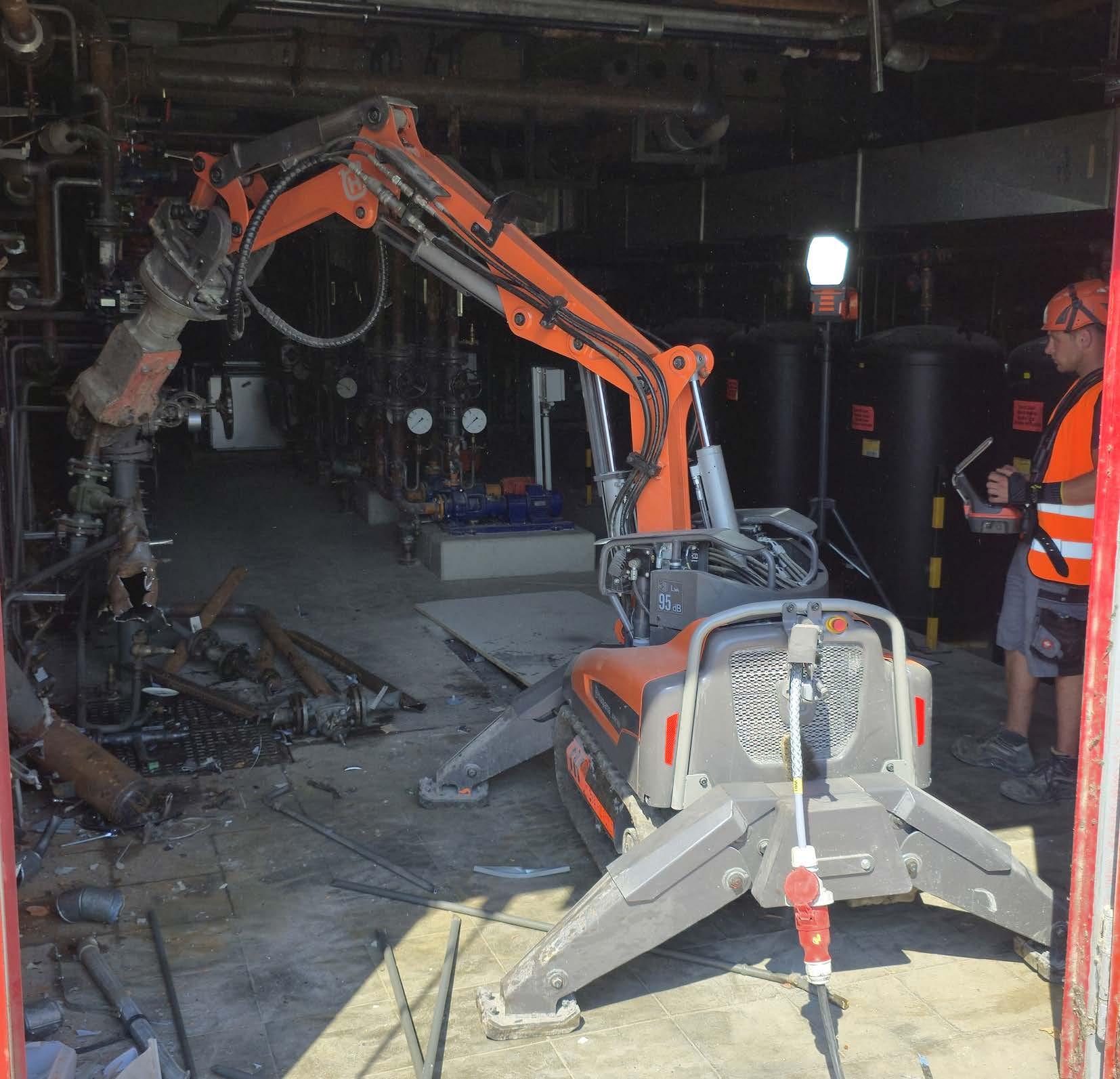
ziehen können, sind für alle Beteiligten wertvoll, von politischen Entscheidungsträgern über Kunden aus der Bauindustrie bis hin zu Projekteignern und Maschinenbetreibern. Wenn wir uns mit führenden Unternehmen der Branche zusammentun, können wir den Wandel gemeinsam vorantreiben", so Mathias Pfitzenmeier, VP Sales & Services Deutschland, Husqvarna Construction.

vor Ort.


